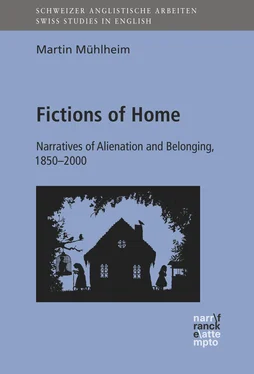Martin Mühlheim - Fictions of Home
Здесь есть возможность читать онлайн «Martin Mühlheim - Fictions of Home» — ознакомительный отрывок электронной книги совершенно бесплатно, а после прочтения отрывка купить полную версию. В некоторых случаях можно слушать аудио, скачать через торрент в формате fb2 и присутствует краткое содержание. Жанр: unrecognised, на английском языке. Описание произведения, (предисловие) а так же отзывы посетителей доступны на портале библиотеки ЛибКат.
- Название:Fictions of Home
- Автор:
- Жанр:
- Год:неизвестен
- ISBN:нет данных
- Рейтинг книги:3 / 5. Голосов: 1
-
Избранное:Добавить в избранное
- Отзывы:
-
Ваша оценка:
- 60
- 1
- 2
- 3
- 4
- 5
Fictions of Home: краткое содержание, описание и аннотация
Предлагаем к чтению аннотацию, описание, краткое содержание или предисловие (зависит от того, что написал сам автор книги «Fictions of Home»). Если вы не нашли необходимую информацию о книге — напишите в комментариях, мы постараемся отыскать её.
In detailed readings of one film and six novels, a view is developed according to which home, as a spatio-temporal imaginary, is rooted in our species being, and as such constitutes the inevitable starting point for any progressive politics.
Fictions of Home — читать онлайн ознакомительный отрывок
Ниже представлен текст книги, разбитый по страницам. Система сохранения места последней прочитанной страницы, позволяет с удобством читать онлайн бесплатно книгу «Fictions of Home», без необходимости каждый раз заново искать на чём Вы остановились. Поставьте закладку, и сможете в любой момент перейти на страницу, на которой закончили чтение.
Интервал:
Закладка:
Nevertheless, there are of course countless literary texts that evoke this ideologyideology of separate spheresseparate spheres, from little-known VictorianVictorian novels like Annie LucasLucas, Annie’s The City and the Castle (“[F]rom the calm, tender eyes of a noble, loving wife, shone the faithful, comprehensive lovelove, that makes the light of an earthly home”; 427) to African AmericanAfrican American interwar classics like Zora Neale HurstonHurston, Zora Neale’s Their Eyes Were Watching God (“She’s uh woman and her place is in de home”; 69). Similarly, Ania LoombaLoomba, Ania has shown that in nationalist struggles against colonialcolonialism masters, women are “usually cast as mothers or wives, and are called upon to literally and figuratively reproduce the nation” (180). Male nationalists have, in other words, often deployed women’s supposedly private position in the family home for eminently public purposes. The key feministfeminism and feminist criticism insight is, in short, that in the critical analysis of home, we need to pay close attention to the way in which home participates in, and perhaps even underpins, the gendering of social space (including the publicpublic spaces-private divide).
In the case of E.T. , for instance, Phyllis DeutschDeutsch, Phyllis argues that Elliott’s mother, Mary, is systematically devalued as a character as part of the film’s promotion of a patriarchalpatriarchy agenda. DeutschDeutsch, Phyllis observes, among other things, that the male childrenchildren in the film never blame the absent father for their parents’ separation. Instead, they lovingly remember the father while directing feelings of frustration at their mother. Moreover, according to DeutschDeutsch, Phyllis the film emphasizes Mary’s inadequacy as a single parent in a scene where she calls the police because Elliott has temporarily gone missing:
[A] policeman grills Mary trying to find out if anything has happened in the family that might have caused her son to run away. Mary tearfully replies that her husband has gone and that “it hasn’t been easy on the childrenchildren.” Clearly, she’s the one at fault: she’s at home and not doing a proper job raising the kids. […] In the viewer’s mind, daddy’s departure is subliminallysubliminal excusable: would you want to live with such an unstableinstability woman? (12–13)
The film, DeutschDeutsch, Phyllis continues, in effect portrays Mary as a comiccomedy buffoon who “constantly misses the obvious,” and the film’s religious infrastructure only serves to support this misogynistmisogyny biasbias because it moves “from father to king to God with sweeping grandeur,” leaving “a lot of troubled women in its wake” (12). If Mary, by the end of the film, does seem more emotionally stable, then for DeutschDeutsch, Phyllis this is not a sign of her progressprogress as a woman, but instead appears as related to a “nice male scientist” who stands next to Mary in the movie’s final scene (13). All homes, in short, need a competent mother, but for DeutschDeutsch, Phyllis E.T. makes the sexist point that female competence ultimately depends on the presence of a male – and although DeutschDeutsch, Phyllis’s account of the portrayal of Mary may be somewhat too scathing, her argument certainly supports William AlexanderAlexander, William’s more cautious claim that the film’s “sexual politics are not the most advanced” (27).
Crucially, feminism’s insistence that the privacyprivacy of the home is inseparable from societal structures of domination constitutes its most direct link to the MarxistMarxism and Marxist criticism traditiontradition, according to which social alienationalienation necessarily affects a person’s entire being. In a sense, this Marxian insight is already encapsulated in the etymology of the word ‘economyeconomy,’ which nowadays refers predominantly to public activities in the capitalistcapitalist market, but which originally derives from the management of the oikos : the Ancient Greek term for ‘householdhousehold’ or ‘family’ (OED; see McKeonMcKeon, Michael, The Secret History of DomesticityDomesticity 7–8). Moreover, the importance for classic Marxism to pay close attention to the material shape of the home is evident in Friedrich EngelsEngels, Friedrich’s The Condition of the Working Class in EnglandEngland in 1844 :
I assert that thousands of industrious and worthy people – far worthier and more to be respected than all the rich of LondonLondon – […] find themselves in a condition unworthy of human beings; and that every proletarianproletariat, everyone, without exception, is exposed to a similar fate without any fault of his own and in spite of every possible effort.
But in spite of all this, they who have some kind of a sheltershelter are fortunate, fortunate in comparison with the utterly homeless. In LondonLondon fifty thousand human beings get up every morning, not knowing where they are to lay their heads at night. (43–44)36
The poor are either homeless or live in the most unworthy conditions, and EngelsEngels, Friedrich insists that in such filthy circumstances “only a physically degenerate race, robbed of all humanity, degraded, reduced morally and physically to bestiality, could feel comfortable and at home” (75). EngelsEngels, Friedrich argues, then, that the industrial proletariatproletariat suffers from such precarious conditions at home that their humanity itself threatens to become deformed.
Meanwhile, if EngelsEngels, Friedrich focuses on the material conditions in workers’ homes, MarxMarx, Karl turns his attention to the process of productionproduction that, he argues, reduces the workers’ sense of belonging or being at home. According to MarxMarx, Karl, the force underlying proletariansproletariat’ sense of unbelonging is their continual experience of estranged or alienated laborlabor:
What, then, constitutes the alienationalienation of laborlabor?
First, the fact that laborlabor is external to the worker, i.e., it does not belong to his essential being; that in his work, therefore, he does not affirm himself but denies himself, does not feel content but unhappy, does not develop freely his physical and mental energyenergy but mortifies his bodybody and ruins his mind. The worker therefore only feels himself outside his work, and in his work feels outside of himself. He is at home when he is not working, and when he is working he is not at home. His labor is therefore not voluntary, but coerced; it is forced labor. It is therefore not the satisfaction of a need; it is merely a means to satisfy needs external to it. ( Economic and Philosophic Manuscripts 74; original emphasis)37
MarxMarx, Karl thus suggests that all humans have a right to feel at home when at work – indeed, that the freedomfreedom to choose one’s work according to one’s abilities and desires constitutes the very essence of humanity as such (whereas animals are not in general able to make such choices; Economic and Philosophic Manuscripts 74–75).38 However, in MarxMarx, Karl’s view, for the vast majority, the capitalistcapitalist system of productionproduction reduces work to a mere means of survival – i.e. to its exchange-valueexchange-value – which in turn leaves the experience of work devoid of any use-valueuse-value: of the specifically human pleasurepleasure that one can gain through creative selfself-expression.
In the case of E.T. , the effects of a social system where exchange-valueexchange-value trumps use-valueuse-value can be seen most clearly in the technocratic approach of most of the film’s adults to non-human life. The scene at schoolschool in which Elliott and his classmates are set the task of anesthetizing and dissecting frogs, for instance, confronts us with a society that inoculates its childrenchildren with a disregard for other life-forms in the name of scientific knowledgeknowledge: perfect evidence for Louis AlthusserAlthusser, Louis’s thesis that schoolsschool form part of what he calls ideological state apparatuses (132–133).39 Given this kind of educationeducation, it is not surprising that the governmentgovernment agents and scientists do not pay any heed to E.T.’s needs and desires, but instead simply try to capture, immobilize, and exploit him in order to gain new knowledge. Accordingly, when the scientists finally get their hands on the alien, they do not hesitate to link him up to their machines and to isolate him from Elliott, his only friend – just as the industrial laborer’s experience of mechanized work often isolates him or her from fellow workers. In short, inured to scientific violenceviolence through years of training and therefore no longer knowing what they do, the scientists hasten E.T.’s ChristJesus Christ-like death. (We may add, incidentally, that JesusJesus Christ happened to be the son of a working man.) We will revisit the problem of alienated work, as well as the question of how it relates to genderedgendering spaces and bodies, in the discussion in chapter five of Pat BarkerBarker, Pat’s Union Street .
Читать дальшеИнтервал:
Закладка:
Похожие книги на «Fictions of Home»
Представляем Вашему вниманию похожие книги на «Fictions of Home» списком для выбора. Мы отобрали схожую по названию и смыслу литературу в надежде предоставить читателям больше вариантов отыскать новые, интересные, ещё непрочитанные произведения.
Обсуждение, отзывы о книге «Fictions of Home» и просто собственные мнения читателей. Оставьте ваши комментарии, напишите, что Вы думаете о произведении, его смысле или главных героях. Укажите что конкретно понравилось, а что нет, и почему Вы так считаете.












